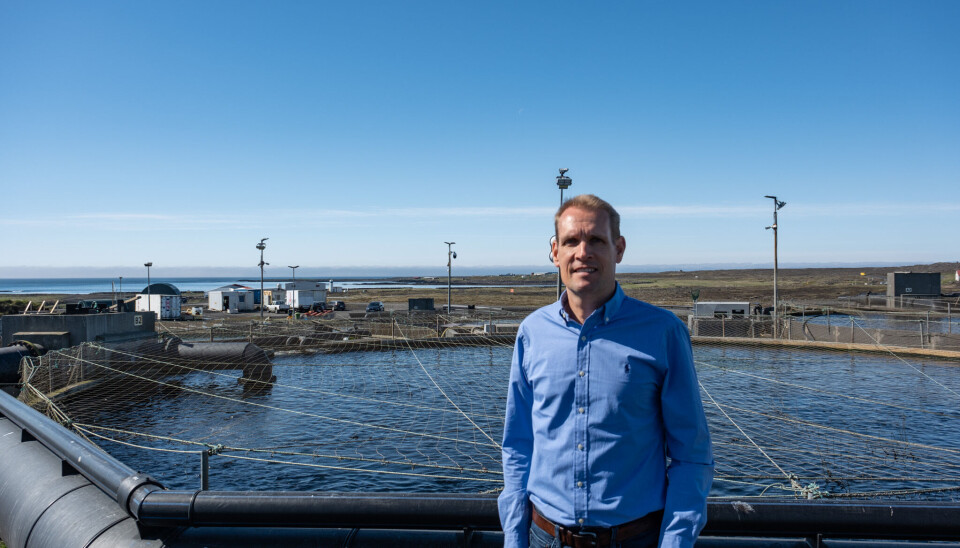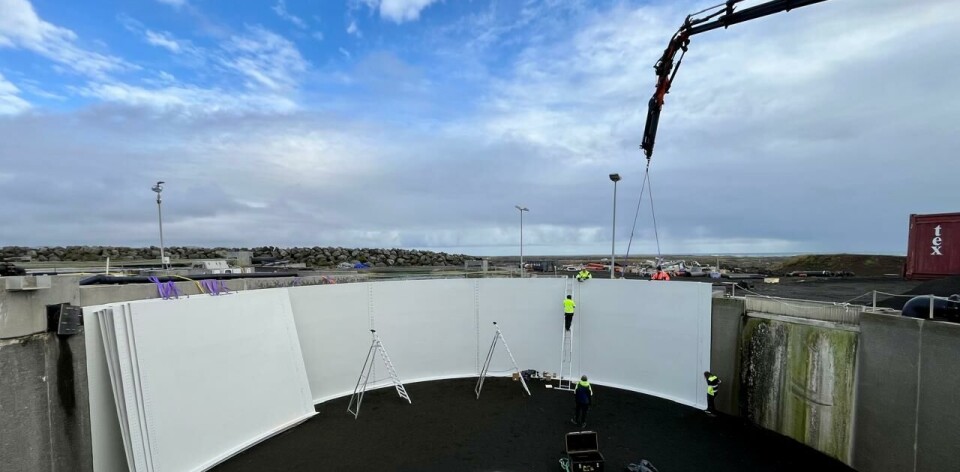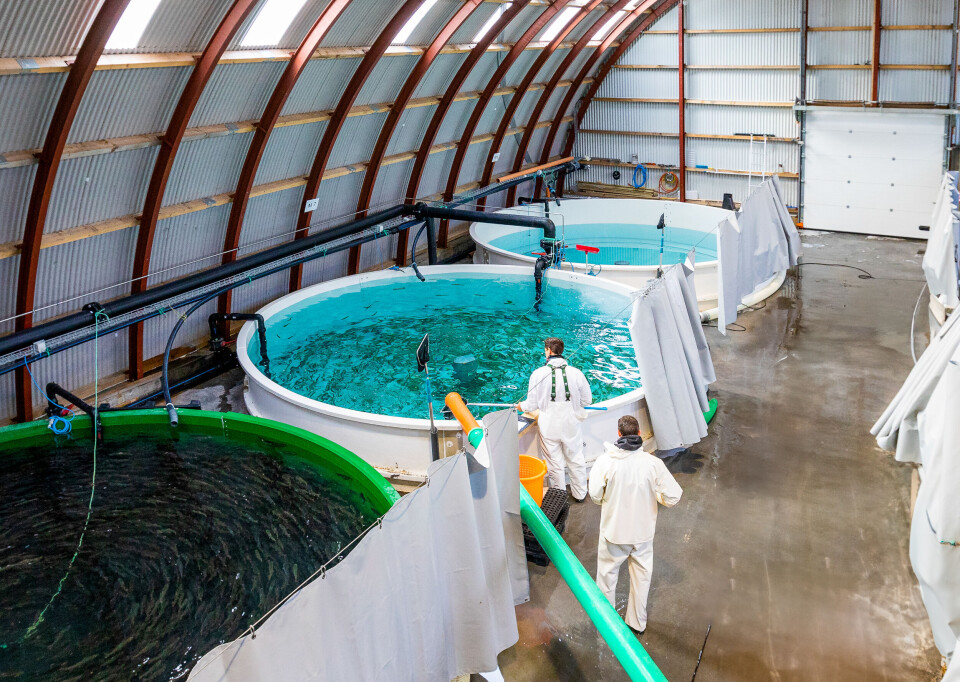
Char grower heads towards record year despite reduced capacity
Although its facility is still not operating to its full potential, Iceland's Matorka is increasing its harvest volume with each passing quarter.
The Icelandic fish farming company Matorka, which produces Arctic char at its land-based facility outside Grindavík, reports good progress in the reconstruction after the damage from the volcanic eruption in 2023.
Four of the company's tanks were damaged, and one of them – full of ready-to-harvest fish – was lost. This corresponded to a loss of 75 tonnes of char.
Managing Director Christo du Plessis tells LandbasedAQ that both the repair work and new technical upgrades are going according to plan.

“Repair work on the damaged tanks is progressing well, and we are well under way installing more borehole pumps and a new water line to the facility. The pumps will be operational in early December and will provide 25% more water to the fry and grow-out sections,” says Du Plessis.
Increased harvest every quarter
Despite reduced production capacity, 2025 has been a very good year for Matorka so far. According to Du Plessis, the company has had strong biomass growth and increasing harvest volumes every quarter.
Once the damaged tanks are back in service and water capacity increases, the company expects further improvements.
"Our forecasts show that 2025 will be our best year ever in terms of both harvests and sales. The hatchery has produced a record number of fry, which bodes well for production in 2026. We look forward to an improved growing environment when 25% of the tank capacity is restored and we have access to more water. Both of these improvements will be in place before the end of the year."
Has reduced costs
The market is described as stable and positive, with increasing demand for Arctic char. Du Plessis explains that the price level is holding up well, while production costs per kilo of fish have decreased compared to the previous year.
“Demand has increased in line with higher harvest volumes without pushing prices down. We have also reduced costs per kilo, both in production and processing, thanks to larger volumes and better efficiency,” says Du Plessis.
Matorka has an annual production capacity of 3,000 tonnes and a permit for 6,000 tonnes of standing biomass. The company has previously said that its focus going forward is on building a stable and profitable operation before further expansion.

